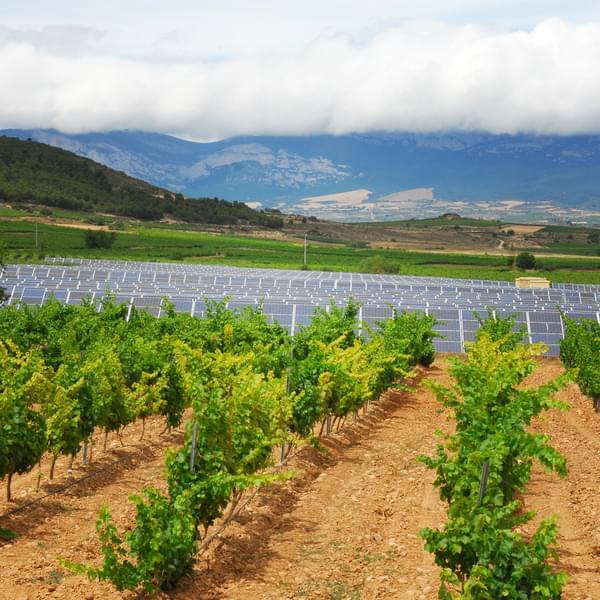Rooted in Responsibility: Sustainable Practices in Winemaking

May your wine be bold, your glass be full, and your vineyard be kind to the planet. This National Wine Day, we’re not just toasting to good times—we’re celebrating the growing number of wineries that are doing good for the Earth. As climate concerns continue to shape how we think about food and drink, sustainable winemaking is rising to the occasion with practices that preserve the land, conserve water, and reduce carbon footprints—without compromising taste.
What Makes a Winery Sustainable?
Sustainable wineries go beyond the basics of organic farming. While organic certification avoids synthetic pesticides and herbicides, sustainable practices consider the bigger picture—soil health, energy use, water management, packaging, and even employee well-being. It’s about nurturing the ecosystem that makes winemaking possible.
Common sustainable practices include:
- Cover cropping and composting to promote healthy soils
- Solar-powered operations to reduce reliance on fossil fuels
- Drip irrigation and recycled water systems to conserve resources
- Lightweight bottles and eco-friendly packaging require fewer resources to produce and help reduce emissions
- Habitat conservation to protect local biodiversity
Why It Matters
The wine industry is especially vulnerable to climate change. Shifts in temperature, unpredictable weather, and water scarcity directly affect grape yields and flavor profiles. By embracing sustainability, wineries are protecting their craft and the environments they depend on, ensuring wine lovers can enjoy their favorite varietals for generations to come.
Wineries Leading the Way
Many vineyards around the world are taking bold steps:
- Fetzer Vineyards (California): The first winery to receive CarbonNeutral® certification in the U.S. and a pioneer in regenerative agriculture. Fetzer has implemented numerous energy efficiency measures over the years, including high-efficiency lighting retrofits, upgraded refrigeration systems, and energy management systems to optimize equipment use. In 2019, they saved enough energy through renewables and efficiency improvements to power approximately 73 homes for a year.
- Tablas Creek (California): A trailblazer in sustainable winemaking, Tablas Creek became the world’s first Regenerative Organic Certified™ vineyard in 2020, and the first Regenerative Organic Certified® Gold vineyard in 2022. Their energy efficiency initiatives include LED lighting, efficient HVAC systems, and solar panels that power most of the winery’s operations, helping reduce energy use and greenhouse gas emissions.
- Yealands Estate (New Zealand): Renowned for its commitment to sustainability, Yealands Estate combines renewable energy generation with comprehensive energy efficiency practices. In addition to solar panels, wind turbines, and biomass burners fueled by vine prunings, the estate uses sensor-controlled lighting, energy-efficient fermentation tanks, and real-time monitoring systems to drive down energy consumption throughout production.
- Château Maris (France): One of the most environmentally advanced wineries in the world, Château Maris is home to the only wine cellar made entirely of hemp bricks, which naturally regulate temperature and reduce heating and cooling needs. The winery uses energy-efficient equipment, LED lighting, and on-site renewable energy sources to support biodynamic operations. It’s also the first—and only—biodynamic winery in Europe to achieve B Corp certification, reflecting its holistic sustainability practices.
How You Can Sip Sustainably
Want to support sustainable winemaking? Here's how:
- Look for certifications like SIP Certified, Demeter (biodynamic), or Regenerative Organic.
- Research wineries and their environmental commitments.
- Support local or low-intervention producers when possible.
- Reuse or recycle wine bottles and corks—every bit counts!
The Final Pour
At Resource Innovations, we help businesses, from agricultural operations to commercial facilities, achieve their sustainability goals without compromising performance. From energy efficiency to decarbonization planning, our tailored solutions drive lasting impact.
Wine has long been about connection—to places, to people, and to tradition. On National Wine Day, let’s raise a glass to the wineries that are connecting those values with a deep respect for the planet. Because sustainability, like wine, only gets better with time.
Cheers to conscious sipping and a more resilient future—one vineyard at a time.
Related Energy Resources
Explore Resource Innovations' energy efficiency insights.